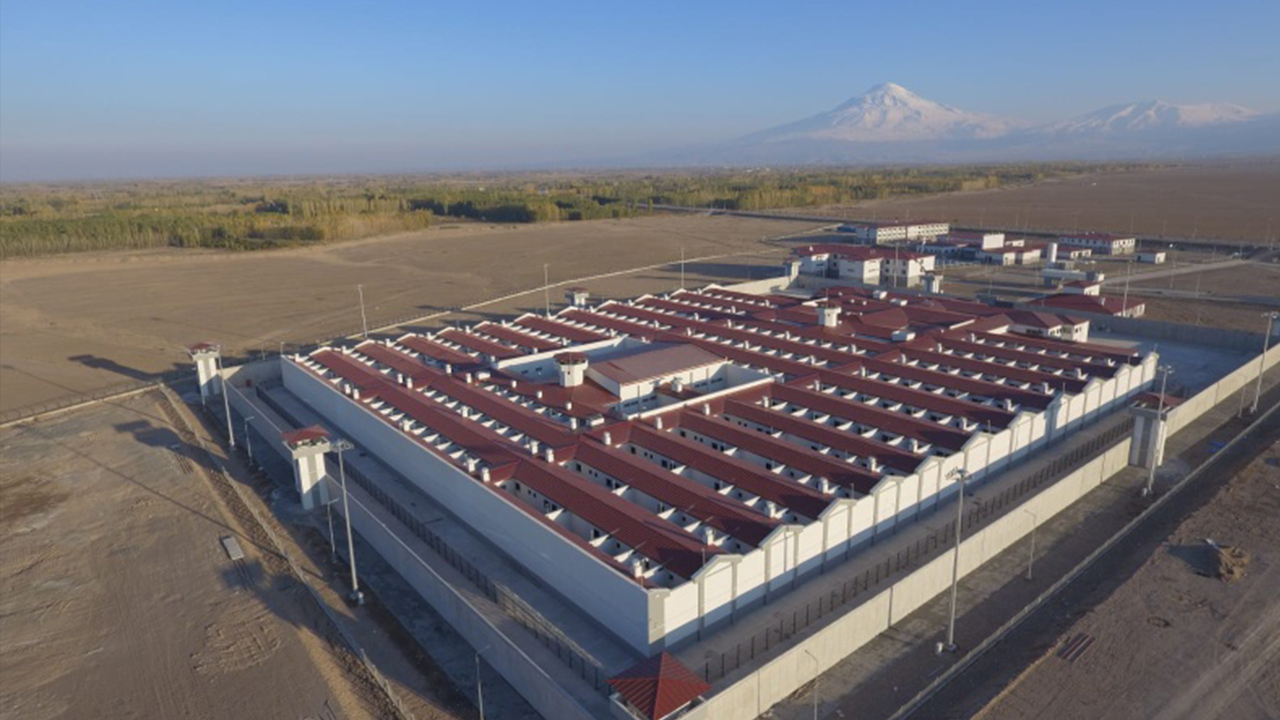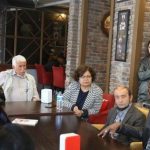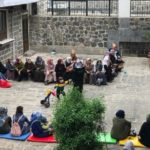h
Imprisoned refugees in Turkey are deprived of fundamental rights like making phone calls with their families or finding jobs to meet their needs in prisons.
Aylin Çelikçi from the Civil Society in the Penal System Association (CİSST) says refugees face discrimination in almost every aspect of life in prisons.
“When they demand justice the officials respond to them by saying ‘This is Turkey; this is how things work here”.
“They cannot find jobs easily in prisons. For instance, there was an African woman who was only allowed to collect garbage because she was African.”
Çelikçi also added that refugees have to get the phone numbers approved by the consulate, a procedure that can only be applied for suspicious phone numbers according to the regulation.
“Prison administration requires this for refugees. However, if the consulate is not open or busy, or the prisoner does not want to contact the consulate due to security reasons, he/she can not make phone calls with family members.”
Need for money
Since refugees do not have any income and find jobs in prisons, they can not send letters, or make phone calls, have new clothes or buy books, magazines.
“They can not buy anything from the canteen or pay the electric bills,” said Çelikçi.
” Their reaching out to their families takes longer times compared to other prisoners since they do not have any money in their accounts when they first enter prisons. They can not afford fresh water or other hygiene products, or clothes if other prisoners do not support them.”
Communication with families
Another major problem they face is the transfer of money.
” If families can send money to them, they do it via Western Union. In Western Union you need to withdraw money with an ID from outside. For that reason prisoners withdraw money with mediators. Unfortunately it is not a very safe method.”
She continued:
” In some prisons, prison administration shares IBAN with the families, this is an easier and safer way than Western Union. However, we have observed that some families were investigated on the grounds of financing terrorism this year.”
Sometimes, the prisoners can not reach out to families in their home countries for years.
” They have the right to communicate with their families, but they need money to make phone calls and these numbers should be approved by those countries, sometimes this takes 2-3 years.”
Language barriers
Another problem that foreigners face in prisons is the language barrier. Çelikçi stated that many refugees cannot communicate even with their attorneys because of that.
“There are no translators during the trials as well, so they are being charged for crimes that they cannot defend themselves in their mother tongue.”
Requests for transfer
Çelikçi noted that some foreign prisoners demand to be transferred to the cities close to the border or airport.
“However, their demands are rejected so they cannot meet with their families for years. There are a few families who come to visit them in Turkey. They also demand to be transferred to prisons in other countries, but this is a long process that sometimes takes 2-3 years.”
No official data
When we asked about the number of foreign prisoners in Turkey, Çelikçi said that they cannot reach exact data.
“The Turkish Statistical Institute (TurkStat) shared the latest data about foreigners in prisons in 2021. According to that, there are 10 thousand 209 foreign prisoners in Turkey by December 2020. This is 3,8 percent of the number of prisoners in Turkey, but we do not know that number for 2021 and 2021.”
According to TurkStat the reasons why foreigners are sentenced to imprisonment in Turkey are as follows:
For men
*Drug manufacturing and drug dealing
*Other crimes
*Robbery
*Looting
*Deprivation of liberty
*Murder
For women
*Robbery
*Drug manufacturing and drug dealing
*Other crimes
*Forgery
(Number of foreign prisoners per year)
(AS/TB/VK)
Source:Bianet
***Show us some LOVE by sharing it!***



